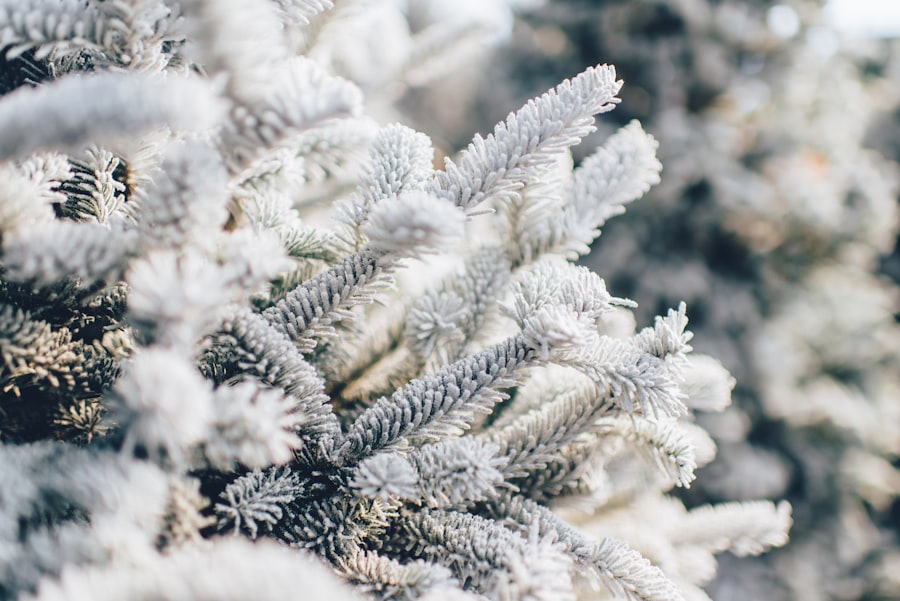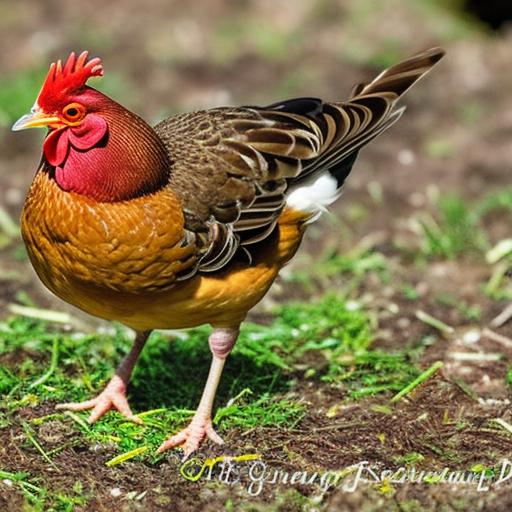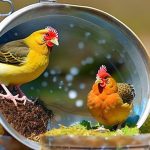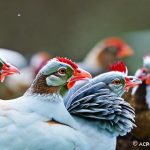Winter can be a challenging time for chicken owners, especially when it comes to egg production. The colder temperatures and shorter daylight hours can have a significant impact on the health and productivity of your hens. In this blog post, we’ll discuss some tips and tricks for ensuring your hens stay healthy and productive during the colder months.
Key Takeaways
- Winter egg production poses unique challenges for chicken owners
- Adequate lighting is crucial for egg production during the winter months
- Maintaining optimal temperature and humidity levels is important for the health of your chickens
- Choosing the right feed and watering schedule can help ensure consistent egg production
- Proper ventilation and airflow are essential for preventing respiratory issues in your chickens during the winter
Providing Adequate Lighting for Your Chicken Coop
Chickens need a certain amount of light to lay eggs, so it’s important to provide adequate lighting in your coop. During the winter months, when daylight hours are shorter, you may need to supplement with artificial lighting. Consider using a timer to ensure your hens get 14-16 hours of light per day. This will help stimulate egg production and keep your hens on a consistent laying schedule.
Maintaining Optimal Temperature and Humidity Levels in the Coop
Chickens are sensitive to temperature and humidity changes, so it’s important to keep the coop at a consistent temperature and humidity level. Extreme cold or heat can stress your hens and reduce their egg production. Use a thermometer and hygrometer to monitor the temperature and humidity in the coop. Aim for a temperature between 45-65 degrees Fahrenheit and a humidity level between 40-60%. You may need to insulate your coop or use heaters or fans to maintain these levels.
Choosing the Right Feed and Watering Schedule
In the winter, chickens may need more food and water to stay warm and hydrated. Cold temperatures can cause their metabolism to increase, requiring more energy. Consider increasing the amount of feed you provide, and make sure it is high-quality and nutrient-dense. You may also want to provide warm water to prevent it from freezing. Check on your hens regularly to ensure they have enough food and water, as they may consume more during the winter months.
Ensuring Proper Ventilation and Airflow in the Coop
Good ventilation is important for keeping the coop dry and preventing the buildup of harmful gases. However, it’s important to strike a balance between ventilation and drafts. Cold drafts can make your hens too cold and increase the risk of frostbite. Make sure your coop has adequate ventilation and airflow, but be careful not to create drafts. You can use vents or windows with adjustable covers to control airflow.
Protecting Against Predators and Winter Weather Hazards

Winter weather can bring new hazards, such as snow and ice, that can make it easier for predators to access your coop. Take steps to protect your coop from predators and winter weather hazards. Use hardware cloth to cover windows and doors, ensuring that there are no gaps or holes where predators can enter. Clear snow and ice from around the coop to prevent predators from digging under or climbing over fences.
Keeping the Coop Clean and Free from Disease
A clean coop is essential for keeping your hens healthy and productive. Regularly cleaning the coop will help prevent the buildup of bacteria and parasites that can cause disease. Use a disinfectant to clean surfaces, including nesting boxes, perches, and feeders. Remove any wet bedding or droppings promptly to keep the coop dry. Monitor your hens for signs of illness, such as lethargy or decreased appetite, and seek veterinary care if necessary.
Providing Adequate Space and Nesting Boxes for Your Hens
Chickens need space to move around and nest boxes to lay their eggs comfortably. Overcrowding can lead to stress and reduced egg production. Make sure your coop has enough space for all of your hens to move around freely. Provide at least one nesting box for every four to five hens, ensuring they are clean, dry, and filled with soft bedding material. If you notice your hens are not using the nesting boxes, consider adding more or making adjustments to make them more appealing.
Supplementing with Calcium and Other Nutrients for Stronger Eggshells
In the winter, hens may need extra nutrients to produce strong eggshells. Cold temperatures can affect the absorption of calcium, which is essential for eggshell formation. Consider supplementing their diet with calcium-rich foods, such as crushed oyster shells or eggshells. You can also provide a balanced layer feed that contains the necessary vitamins and minerals for optimal egg production. Consult with a poultry nutritionist or veterinarian to determine the best supplementation plan for your hens.
Monitoring Your Hens’ Health and Egg Production Throughout the Winter Season
Finally, it’s important to monitor your hens’ health and egg production throughout the winter season. Keep track of how many eggs your hens are laying and watch for any signs of illness or stress. If you notice a significant decrease in egg production or any abnormal behavior, it may be a sign that something is wrong. Take immediate action to address any health issues and provide the necessary care and treatment.
In conclusion, winter egg production can be challenging, but with proper care and attention, you can ensure that your hens stay healthy and productive throughout the colder months. Providing adequate lighting, maintaining optimal temperature and humidity levels, choosing the right feed and watering schedule, ensuring proper ventilation and airflow, protecting against predators and winter weather hazards, keeping the coop clean and free from disease, providing adequate space and nesting boxes, supplementing with calcium and other nutrients, and monitoring your hens’ health and egg production are all essential steps in ensuring successful winter egg production. By following these tips and tricks, you can enjoy a steady supply of fresh eggs even during the coldest months of the year.
If you’re interested in learning how to keep chickens laying eggs in the winter, you may also find this article on “How Big Does a Coop Need to Be for a Chicken?” helpful. It provides valuable insights into the ideal size and space requirements for a chicken coop, ensuring your feathered friends have enough room to thrive and continue laying eggs even during the colder months. Check it out here. Additionally, if you’re considering alternative options for housing your chickens, you might want to explore the article on “Turning a Shed into a chicken coop” or even consider the convenience of “Renting a Chicken Coop.”
FAQs
What is the reason why chickens stop laying eggs in the winter?
Chickens stop laying eggs in the winter due to the decrease in daylight hours and the drop in temperature.
How can I keep my chickens warm during the winter?
You can keep your chickens warm during the winter by insulating their coop, providing them with a heat source, and ensuring that their water doesn’t freeze.
What should I feed my chickens during the winter?
You should feed your chickens a balanced diet that includes protein, calcium, and vitamins. You can also supplement their diet with scratch grains and mealworms.
How can I increase the amount of daylight my chickens receive in the winter?
You can increase the amount of daylight your chickens receive in the winter by providing them with artificial light. However, it’s important to gradually increase the amount of light they receive to avoid stressing them out.
What breeds of chickens are best for laying eggs in the winter?
Breeds of chickens that are best for laying eggs in the winter include Rhode Island Reds, Plymouth Rocks, and Leghorns. These breeds are known for their hardiness and ability to lay eggs in colder temperatures.
Meet Walter, the feathered-friend fanatic of Florida! Nestled in the sunshine state, Walter struts through life with his feathered companions, clucking his way to happiness. With a coop that’s fancier than a five-star hotel, he’s the Don Juan of the chicken world. When he’s not teaching his hens to do the cha-cha, you’ll find him in a heated debate with his prized rooster, Sir Clucks-a-Lot. Walter’s poultry passion is no yolk; he’s the sunny-side-up guy you never knew you needed in your flock of friends!







